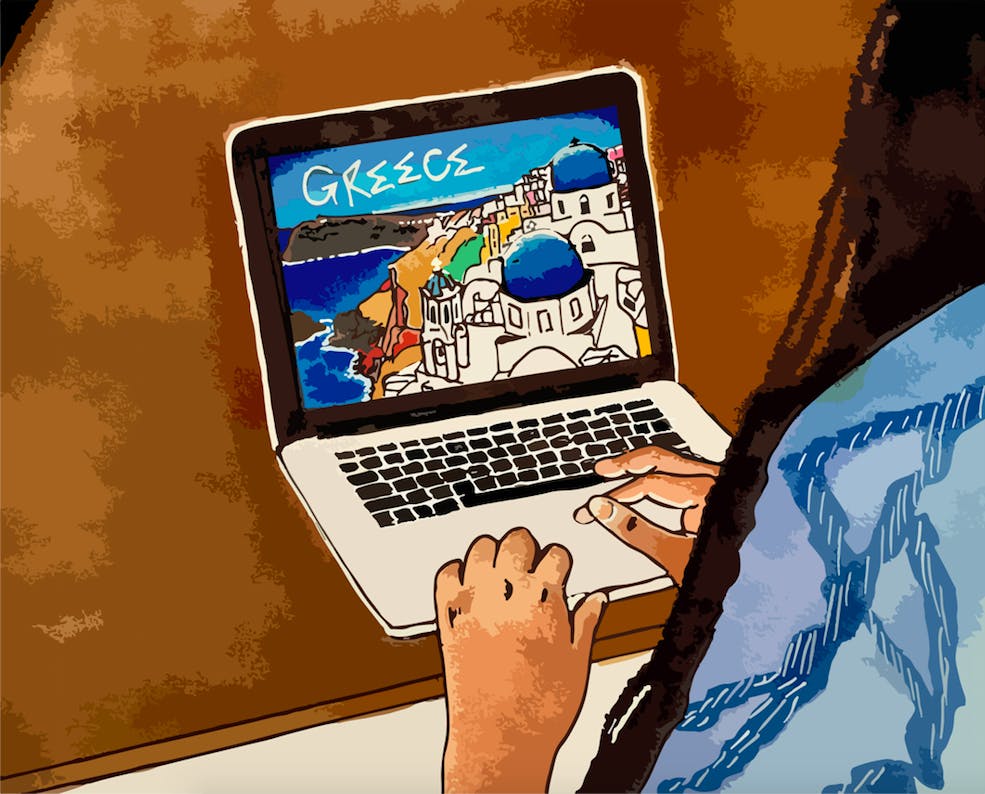
Western, like most public universities in Washington state, has canceled study abroad through the summer as a response to COVID-19.
Students seem to be experiencing both disappointment and understanding with regard to their hard-earned plans to study abroad being canceled, according to Ryan Larsen, director of Education Abroad for Western.
“It’s pretty disappointing, but I was also expecting it with everything that’s going on,” said Tristen Moseley, a Western student who was planning on attending KCP (Knowledge-Coexistence-Peace) International Japanese Language School during summer quarter.
“Frankly, university leaders, the Education Abroad staff, faculty and I are feeling heartbroken,,” Larsen said.
This sentiment is echoed by professors as well.
“Nothing can replace the experience of immersing oneself in a different culture,” said Nicholas Zaferatos, an urban planning and sustainable development professor at Western.
Zaferatos’ sustainable development studies in the Mediterranean program emphasized applied research and immersion in Greece.
“Students will be missing out on experiencing Greek culture, life, architecture and history,” Zaferatos said. “We travel throughout the Aegean and Ionian Islands and spend some time in urban Athens.”
A focus of the program is in traditional sustainable communities, according to Zaferatos.
“We examine examples of medieval hilltop villages in several island locations and explore Athens by examining social spaces, history, contemporary culture, as well as museums,” Zaferatos said. “The focus of the program is our 10-year study on the island of Ithaca where students contribute each year to a sustainable development plan for the island.”
Students usually take courses that apply to their degree requirements. If they cannot find a substitute course through Western, it could delay their graduation plans, according to Larsen.
“COVID-19 has interrupted our lives in many ways, and this is another potential example of that,” Larsen said.
According to Larsen, some faculty members are working to offer an online version of their study abroad course, but that is still in the process of coming together, as summer study courses abroad were canceled April 10.
“For students whose academic program requires a study abroad experience, such as the international business program or international studies minor, we are proposing alternatives to fulfill that requirement, such as virtual internships or courses with intercultural themes through Western,” Larson said.
“[Though] all WWU study abroad classes are canceled this summer, I do plan to offer this program again in 2021,” Zaferatos said.
Some students have pushed their plans to study abroad back.
“I’m hoping on doing the same study abroad class next summer,” Moseley said.
Western temporarily suspended study abroad after the Centers for Disease Control warned to avoid all non-essential travel and the United States Department of State announced a “Do Not Travel” Global Health Advisory.
“We don’t have time to wait to make a decision, since so many deposits and payments are due presently — we don’t want students to lose any money,” Larson said.
Students in Western’s faculty-led study abroad programs will receive a full refund of their deposits, and students studying abroad at host universities through provider programs should also be refunded their deposits and payments, as they are canceling through no fault of their own, Larson said.
Western will not bring back study abroad programs until the State Department’s “Do Not Travel” Global Health Advisory drops, the CDC lowers its “Avoid All Non-Essential Travel” worldwide warning and the borders of host countries are opened to U.S. citizens, according to Larson.
While there are negative impacts caused by canceling study abroad courses, the negative impacts of running study abroad this summer would be even greater, Larson said.





